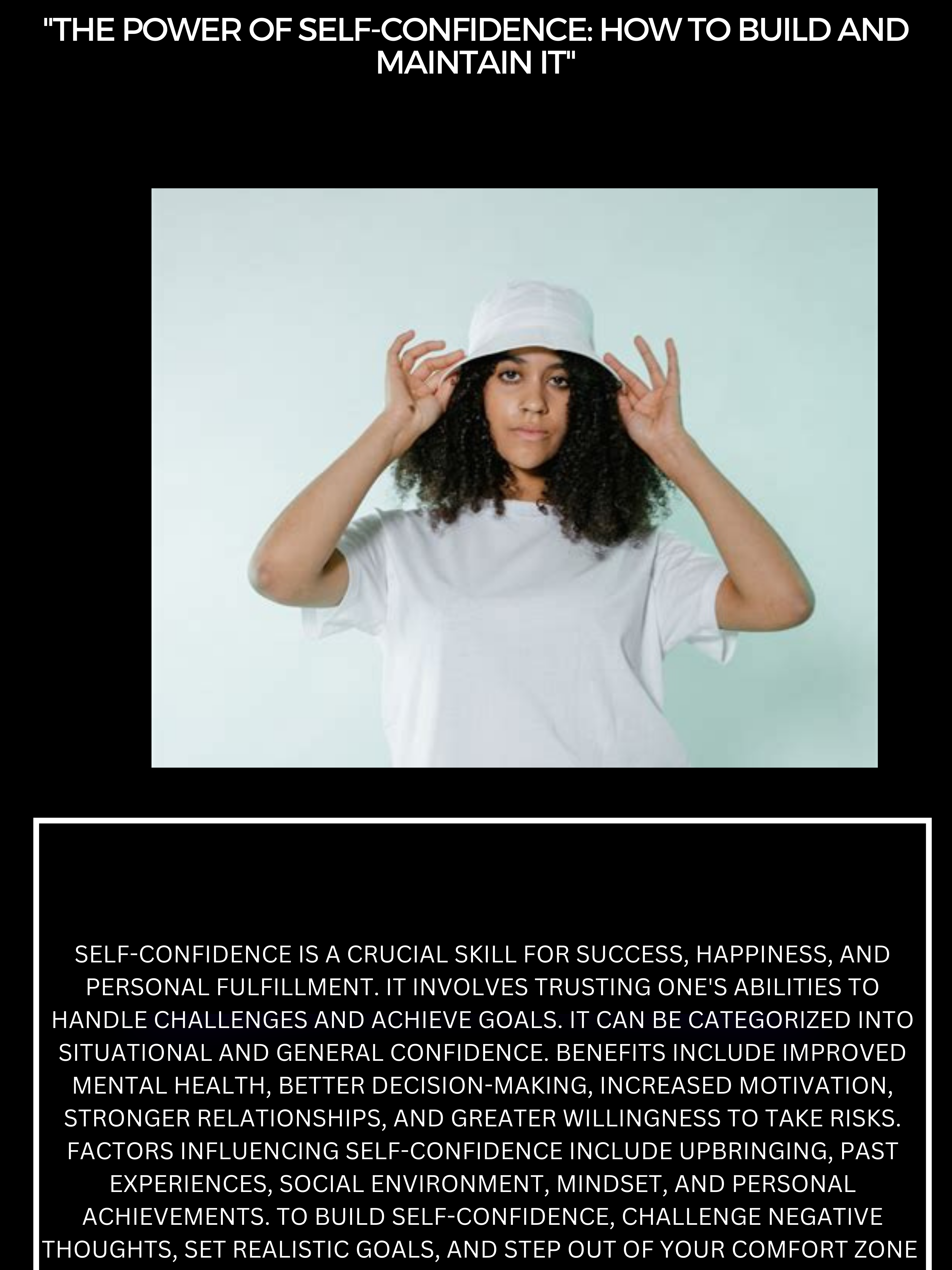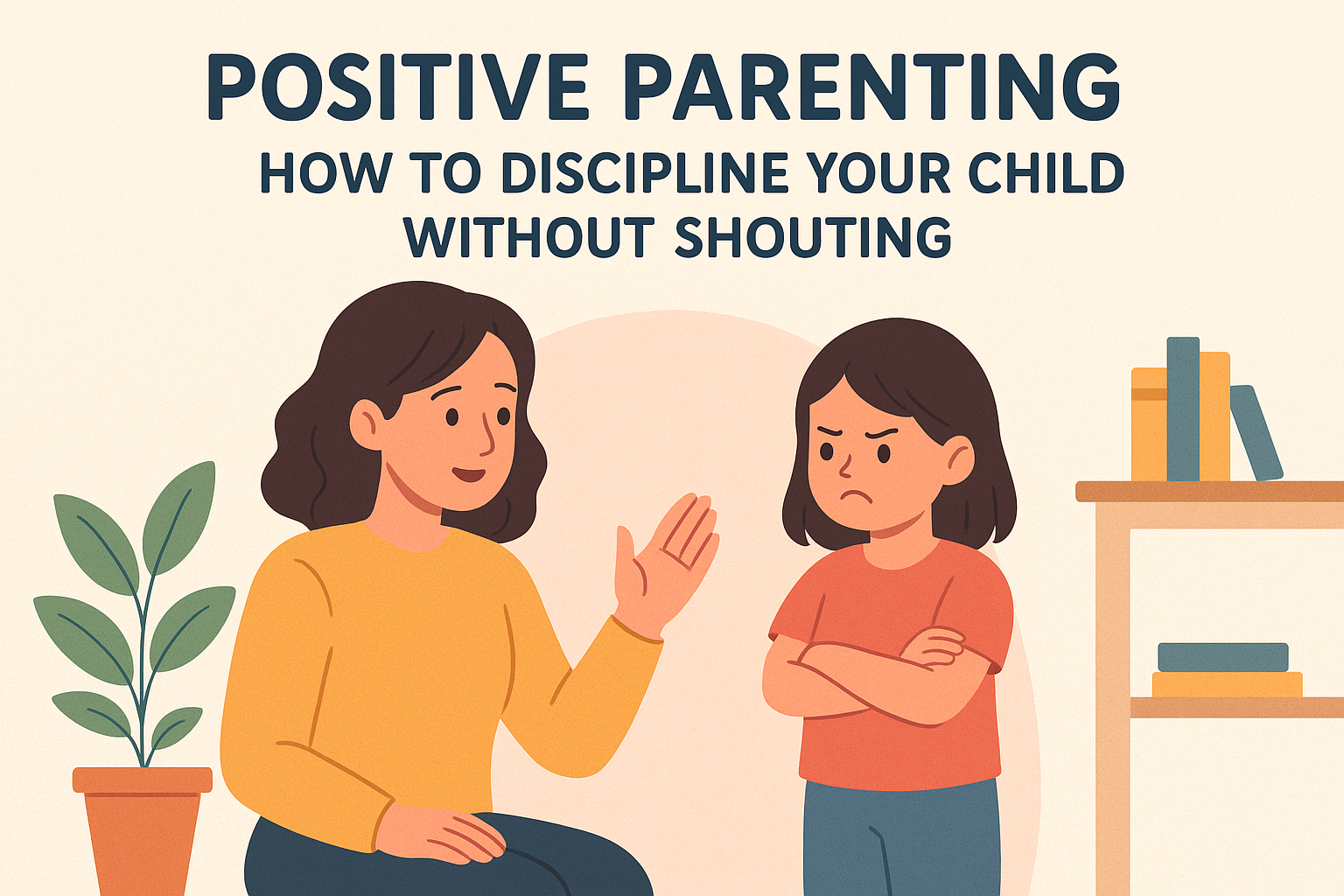
The power of self-confidence:How to build and maintain it
The Power of Self-Confidence: How to Build and Maintain It
Introduction
Self-confidence is the foundation of success, happiness, and personal fulfillment. It is the belief in oneself and one's abilities to overcome challenges and achieve goals. When you have self-confidence, you trust yourself to make decisions, take risks, and face life’s difficulties with resilience. However, many people struggle with low self-confidence due to past failures, criticism, or self-doubt. The good news is that self-confidence is not something you are born with; it is a skill that can be developed with practice and persistence.
In this article, we will explore what self-confidence is, its benefits, factors that influence it, and practical ways to build and maintain it.
What is Self-Confidence?
Self-confidence is the belief in one’s abilities, qualities, and judgment. It is about trusting yourself to handle life’s challenges effectively. People with high self-confidence are not necessarily those who never experience fear or doubt; rather, they have learned to manage these feelings and move forward despite them.
Self-confidence can be categorized into two main types:
1. Situational Confidence – This type of confidence varies depending on the situation. For example, you may feel confident in your ability to play a sport but lack confidence when speaking in public.
2. General Confidence – This is an overall belief in oneself, regardless of the situation. People with high general confidence believe in their ability to learn, adapt, and succeed in different aspects of life.
The Benefits of Self-Confidence
Self-confidence has numerous advantages that impact various areas of life, including:
1. Improved Mental Health
Confident individuals experience lower levels of stress, anxiety, and depression. They are more resilient in dealing with setbacks and failures.
2. Better Decision-Making
When you trust yourself, you make decisions more easily without excessive worry or fear of failure.
3. Increased Motivation and Success
Confidence helps you set and achieve goals. It fuels perseverance, making it easier to overcome obstacles.
4. Stronger Relationships
Self-confident people tend to have healthier relationships because they are not overly dependent on others for validation. They communicate effectively and set healthy boundaries.
5. Greater Willingness to Take Risks
Confidence allows people to step out of their comfort zone and take risks that lead to growth and new opportunities.
Factors That Influence Self-Confidence
Several factors affect an individual’s level of self-confidence:
1. Upbringing – Childhood experiences play a significant role in shaping confidence. Encouragement, support, and positive reinforcement help build self-esteem.
2. Past Experiences – Successes boost confidence, while failures can diminish it. However, learning from failure can strengthen self-belief.
3. Social Environment – Surrounding yourself with supportive and positive people enhances confidence, whereas toxic relationships can harm it.
4. Mindset – A growth mindset, which views challenges as opportunities to learn, contributes to higher confidence levels. A fixed mindset, on the other hand, can lead to self-doubt.
5. Personal Achievements – Setting and accomplishing goals, even small ones, builds confidence over time.
How to Build Self-Confidence
1. Challenge Negative Thoughts
Self-doubt and negative self-talk can destroy confidence. Start by identifying and challenging these thoughts. Replace them with positive affirmations. For example, instead of thinking, “I can’t do this,” say, “I am capable, and I will give my best effort.”
2. Set Realistic Goals
Setting small, achievable goals boosts confidence as each success builds momentum. Break big tasks into smaller steps and celebrate your progress.
3. Step Out of Your Comfort Zone
Growth happens outside your comfort zone. Try new things, face your fears, and embrace challenges. Even if you fail, you will gain valuable experience and resilience.
4. Improve Your Skills
Confidence grows when you feel competent. Whether it's learning a new language, public speaking, or playing an instrument, developing your skills enhances self-belief.
5. Take Care of Your Physical Health
Exercise, a healthy diet, and proper sleep contribute to better self-esteem and confidence. When you feel good physically, it positively impacts your mental state.
6. Maintain Good Posture and Body Language
Your body language affects how you feel about yourself. Stand tall, make eye contact, and practice a firm handshake. These small changes can instantly boost confidence.
7. Surround Yourself with Positive People
Avoid people who bring you down or make you doubt yourself. Instead, spend time with those who support and encourage you.
8. Learn from Failure
Instead of letting failure damage your confidence, view it as a learning opportunity. Every successful person has failed at some point but used it as a stepping stone.
9. Practice Self-Compassion
Be kind to yourself. Don’t be overly critical of your mistakes. Treat yourself with the same kindness and encouragement you would give a friend.
10. Visualize Success
Mental imagery is a powerful tool. Before an important event, visualize yourself succeeding. This practice helps build self-confidence and reduces anxiety.
How to Maintain Self-Confidence
Building confidence is one thing; maintaining it requires continuous effort. Here’s how you can keep your confidence levels high:
1. Continue Learning and Growing – Always look for ways to improve yourself. Learning new skills and gaining knowledge helps you stay confident.
2. Celebrate Your Achievements – Take time to recognize your accomplishments, no matter how small. This reinforces your belief in your abilities.
3. Develop a Positive Routine – Establish habits that make you feel good about yourself, such as exercise, journaling, or meditation.
4. Avoid Comparison – Comparing yourself to others can lower confidence. Focus on your own progress and growth.
5. Seek Support When Needed – If you struggle with confidence, talking to a mentor, coach, or therapist can help.
Conclusion
Self-confidence is a powerful trait that can transform your life. It allows you to take control, make better decisions, and face challenges with courage. While building self-confidence takes time and effort, it is a skill that can be developed with practice. By adopting positive habits, challenging self-doubt, and embracing growth, you can cultivate lasting confidence that empowers you to achieve your dreams.
Remember, confidence is not about being perfect or fearless; it is about believing in yourself and your a
bility to keep moving forward despite obstacles. So, start today—take small steps, trust yourself, and watch your confidence grow!



0 COMMENTS